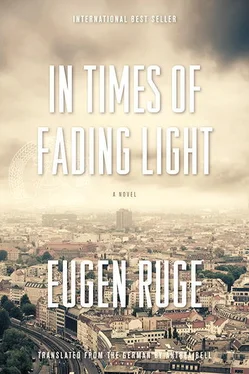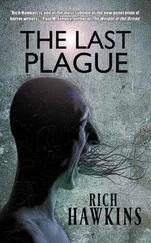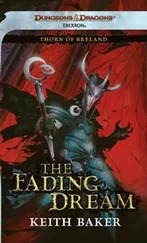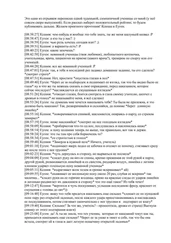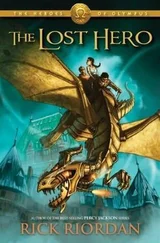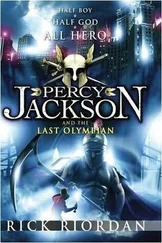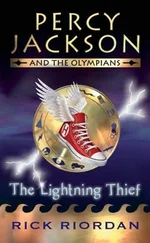“Columbus,” said Wilhelm, “called the Indians Indians because he thought he was in India. Comprende? And we still call them by the same name. Nonsense, eh?”
He spread a thick layer of liver sausage on the bread and butter.
“The Indians,” said Wilhelm, “are the original inhabitants of the American continent. America belongs to them. But instead…”
He placed a pickle on top of the bread and liver sausage, or more precisely he threw it at the bread and liver sausage, but the pickle fell off again and landed on the tablecloth.
“Instead,” he said, “today they are the poorest of the poor. Dispossessed, exploited, oppressed.”
Then he cut the pickle in half, pressed the halves deep into the liver sausage, and began munching noisily.
“That,” said Wilhelm, “is capitalism.”
After supper Granny and Alexander went into the conservatory. It was warm and damp in the conservatory, and there was a sweetish but also salty smell, almost like in the zoo. The indoor fountain hummed quietly. Among cacti and rubber plants, things that Granny had brought back from Mexico stood or lay around: coral, shells, items made of genuine silver, the skin of a rattlesnake that Wilhelm personally had killed with a machete. On the wall hung the sawlike snout of a real sawfish, almost two meters long and as improbable as a unicorn’s horn. But best of all was the stuffed baby shark. Its rough skin gave Alexander the creeps.
They sat on the bed (Granny’s bed was in the conservatory because it was the only room where she could sleep easily), and Granny began telling stories. She told him about her travels: horse-riding trips that went on for days; voyages in a canoe; piranhas that ate whole cows; scorpions that got into your shoes; raindrops as big as coconuts; and a jungle so dense that you had to cut yourself a way through it with a machete, and on your way back you found the path already overgrown again.
Today Granny told him about the Aztecs. Last time she had told the tale of how the Aztecs wandered through the desert. Now he heard the story of when they found the deserted city, and because there was no one living there, the Aztecs thought it had been the home of the gods and called it Teotihuacán— the place where you become God.
“But Granny, there isn’t really any God.”
“No, there really isn’t any God,” said Granny, and she told him how the gods founded the fifth world. “Because the world,” said Granny, “had come to an end four times already, and it was dark and cold, with no sun left in the sky. A single flame still burned on the Great Pyramid of Teotihuacán, that was all, and the gods assembled to take counsel. They came to the conclusion that only if one of them sacrificed himself would a new sun be born.”
“Granny, what does sacrifice mean?”
“It means that one of them had to throw himself into the fire so that he could rise again in the sky as a new sun.”
“Why?”
“One god had to sacrifice himself so that the lives of the others could go on.”
An amazing discovery.
Mama put him to bed.
“Will you come into bed with me?”
“Not tonight,” said Mama. “I’ve only just done my hair.”
Her dress rustled as she left.
This evening he felt particularly uneasy. Pictures haunted him in the dark. He thought of God having to throw himself into the fire. A word came into his head: kipitalism. It sounded like heat; in Russian kipit means “it’s boiling.” Piranhas swam around in bubbling broth. Don’t put your finger in there, said his father. Aztecs danced barefoot in the desert sand, their faces twisted with pain. Wilhelm, Wilhelm, shouted Granny. Wilhelm came and put everything out with the brine from the pickles. Mama, in her chic dress, distributed shoes to the Aztecs. They were ladies’ shoes that had gone out of fashion. The Aztecs looked at them in great surprise, but all the same they put them on. Then they went on wandering through the desert, which was now drenched in brine. The heels of their shoes sank in yellow mud.
Alexander woke and threw up; it tasted of lemon cream. After that he ran a high temperature for three days.
In April it was his birthday. He got a scooter (with rubber tires), a swimming ring, and a electric caterpillar tractor.
Peter Hofmann, Matze Schöneberg, Katrin Mählich, and quiet Renate came to his party. Peter Hofmann ate three slices of cake. They played Hit the Pan, taking turns being blindfolded and then trying to locate the pan and hit it with a wooden spoon, when they would find a little present under it.
Now that he was five, the question came up again.
“Mama, when are we going to see Baba Nadya?”
“At the beginning of September.”
“When will it be September?”
“It’s only May now, so there will be June, July, and August, and then it will be September.”
Alexander was furious. “You said time goes faster when you get older.”
“When you’re older than now, Sashenka. Really grown up.”
“When will I be really grown up?”
“You’ll be really grown up when you’re eighteen.”
“How big will I be then? As big as Papa?”
“Bigger, for sure.”
“Why?”
“Children usually grow up to be bigger than their parents. And parents get a little bit smaller again in their old age.”
She said to the salesgirl, in German:
“A pound of ground beef, please.”
The summer began.
At first you had to bargain to be allowed to wear short pants. But soon, after a few days, summer really set in, spread almost unnoticed, occupied the last little nooks and crannies of Neuendorf, drove the chill out of the moist earth. The grass was warm now, the air was full of hovering insects, and no one remembered getting goose bumps, not on the first day when you could wear short pants; no one could imagine that this summer would ever end.
Roller-skating. Steel roller skates were the latest thing. They made a tremendous clattering noise. Wilhelm came out.
“This is too much! Talk about farcical!”
Making bows and arrows: the arrows twigs from some bush with a name no one knows, copper wire wound around the arrowheads. Uwe Ewald shoots Frank Petzold in the eye. Off to the hospital, everyone gets bawled out.
Drawing on the street in chalk. Peter Hofmann draws a swastika, but next moment he turns it into a window—just by making the lines longer.
Also strictly forbidden is going into the bunker. The big kids do it all the same. When Alexander goes into the bunker a ghost appears from the depths of it, only a head with bright red cheeks. Alexander’s hair stands on end with horror. He runs for the exit in silence.
Not forbidden, but somehow not allowed either, is playing rider and horse with Renate Klumb. She has to lie down on her tummy in the grass with her skirt up. He sits on top of her. Renate doesn’t have to make any movements in this game. It’s enough for their bare skin to touch here and there.
Eating unripe apples with Matze. The result is diarrhea.
Katrin Mählich gets her finger jammed in a deck chair.
They build cities for firebugs in the Hofmanns’ sandbox. There are any number of firebugs. The stones are warm from the sun, and troops of the bugs bask on them, never moving.
And just as summer is finally slowing right down, when the days no longer move from the spot, when time, in spite of all assurances to the contrary, stops passing, and Alexander has almost forgotten about it, his mother says:
“We’re going to see Baba Nadya next week.”
“Next week,” announces Alexander, “I’m going to the Soviet Union.” Achim Schliepner doesn’t seem greatly impressed.
“The Soviet Union is the biggest country in the world,” says Alexander.
Читать дальше
